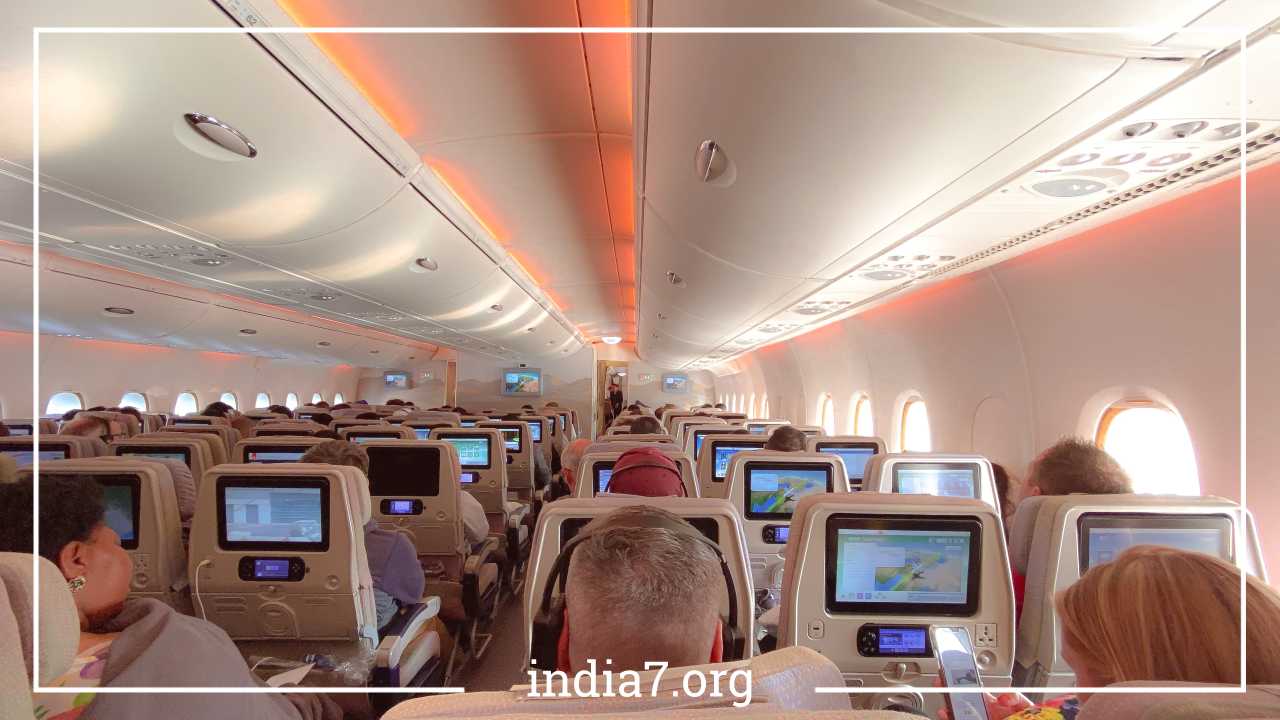Mastering Air Travel: Staying Calm on International Flights for a Safe and Enjoyable Journey

Air Travel
The act of air travel is a marvel of modern engineering, connecting people from different corners of the globe within hours. International flights, in particular, are remarkable in their ability to bridge vast distances, enabling individuals to explore distant lands, reunite with loved ones, or conduct business on a global scale.
However, with the increasing complexities of air travel, there also comes a heightened sense of anxiety and apprehension among passengers, both novice and experienced. This article delves into the significance of maintaining composure during international flights and provides comprehensive guidance on how to ensure a safe and comfortable journey.
The Modern Air Travel Landscape
In today’s society, the landscape of air travel has undergone significant changes, ushering in an era of heightened security and surveillance. Airport security measures, airline personnel, and fellow passengers are all deeply concerned about safety, and rightfully so. Terrorism threats, aviation incidents, and unforeseen emergencies have contributed to a palpable sense of vigilance in the air travel industry.
One unsettling reality is that even seemingly innocuous remarks or actions can have severe consequences in the confined space of an airplane. For instance, uttering the word “bomb” or engaging in disruptive behavior can lead to a flight diversion to the nearest airport. This precaution, while necessary, can induce panic and inconvenience for passengers. Therefore, maintaining a calm demeanor on an international flight is not just a matter of personal comfort but is crucial for the overall safety and efficiency of air travel.
The Anxious Traveler
One of the most common reasons passengers experience discomfort or anxiety during flights is the fear of flying itself. Whether it’s a first-time flyer or an individual with a general aversion to flying, the anxiety can be overwhelming. In such cases, learning how to manage and mitigate these feelings is of paramount importance.
- Strategies for Managing Flight Anxiety
- Positive Visualization: Before boarding, try to envision a successful and comfortable journey. Imagine yourself arriving at your destination safely and feeling relaxed throughout the flight.
- Breathing Techniques: Deep breathing exercises can be incredibly effective in reducing anxiety. Practice inhaling slowly through your nose and exhaling through your mouth.
- Distraction: Bring along entertainment options such as books, movies, or music to divert your attention from any anxious thoughts.
- Meditation and Mindfulness: Consider incorporating mindfulness techniques into your pre-flight routine. Apps and resources are available to guide you through relaxation exercises.
- Medication: In consultation with a healthcare provider, explore the option of using anti-anxiety medications or natural remedies like herbal teas to ease anxiety symptoms.
Understanding the Consequences of In-flight Disturbances
The primary reason passengers must maintain composure during a flight, particularly on international routes, is an awareness of the potential consequences of disruptive behavior. Flight attendants are trained to identify passengers who appear nervous, agitated, or confrontational. While the majority of these passengers may not pose any security threat, their behavior could be interpreted as suspicious.
- In-flight Disturbances: A Closer Look
- Flight Diversions: If a passenger’s behavior is deemed disruptive or poses any perceived threat to the safety of the flight, the aircraft may be diverted to the nearest airport.
- Confrontation with Authorities: Upon diversion, passengers may find themselves in an uncomfortable situation, facing airport security or local law enforcement.
- Legal Consequences: Depending on the nature of the disturbance, passengers can be charged with offenses such as disorderly conduct or interference with flight crew, leading to legal consequences and potential bans from future flights.
Maintaining Calm at the Airport
The importance of maintaining composure extends beyond the confines of the aircraft itself; it is equally vital at the airport, which serves as the gateway to air travel. All international airports are on high alert due to the heightened security environment, which entails both the screening of prohibited items and vigilant monitoring of passenger behavior.
- Tips for Staying Calm at the Airport
- Early Arrival: Arriving well in advance of your flight can alleviate time-related stressors and provide a buffer for unexpected delays.
- Focus on Positivity: Redirect your thoughts toward positive aspects of your trip, such as the excitement of exploring a new destination or reuniting with loved ones.
- Compliance with Security: Cooperation with airport security personnel is essential. If requested to undergo additional screening or provide additional information, it’s advisable to comply promptly and respectfully.
- Distraction Techniques: Engage in activities that can help distract you from airport-related stress, such as reading, people-watching, or enjoying a meal.
Developing Coping Strategies for a Calmer Journey
While understanding the consequences of disruptive behavior and maintaining composure are critical, it’s equally important to develop a toolkit of coping strategies to ensure a calm and pleasant journey.
- Coping Strategies for a Calmer Journey
- Positive Affirmations: Repeating positive statements to yourself can boost your confidence and reduce anxiety.
- Noise-Canceling Headphones: Consider investing in noise-canceling headphones to block out ambient noise and create a more serene environment.
- Pre-flight Relaxation Rituals: Establish a pre-flight routine that includes relaxation exercises, such as stretching or meditation.
- Herbal Remedies: Explore natural remedies like herbal teas or supplements known for their calming properties.
- Travel Support Networks: Connect with support networks for anxious travelers, both online and in person, to share experiences and tips.
The Long-term Impact of Anxiety-Induced Regret
Failure to manage anxiety and maintain composure during international flights can have lasting consequences. Regret about choosing to fly can linger for years, impacting future travel plans and opportunities. It is essential to recognize that the ability to travel and explore the world is a privilege, and anxiety should not hinder one’s capacity to embrace this privilege.
Final Remarks
International flights open up a world of opportunities, connecting people across borders and cultures. However, they also come with challenges, particularly the need to manage anxiety and maintain composure. Understanding the consequences of disruptive behavior and developing coping strategies are key to ensuring a safe and pleasant journey. By following the guidance provided in this comprehensive guide, travelers can embark on international flights with confidence, knowing they have the tools to navigate the skies with ease and composure. Remember, the journey can be as rewarding as the destination, and staying calm is the first step towards making the most of it.



